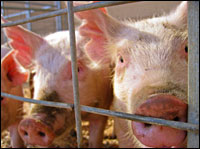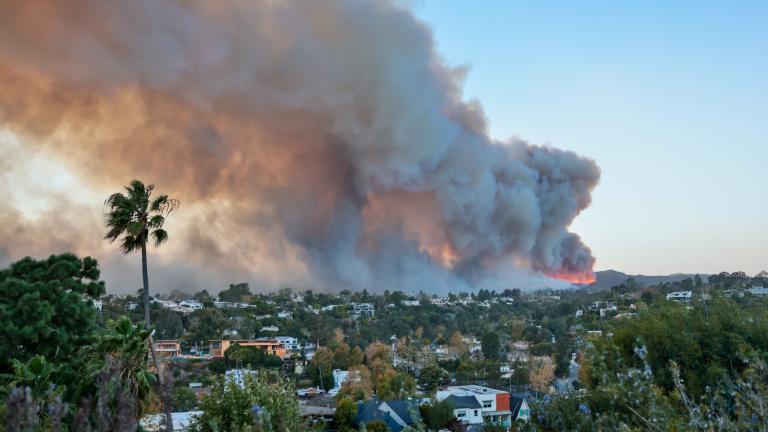The following is a guest post from Scott Faber, Farm Bill campaign director for Environmental Defense. (Scott also has a blog.)
—

Congress is in serious negotiations over the next version of the Farm Bill. The debate is fertile ground for food policy myths and misconceptions. Perhaps the best (or worst) example is that old chestnut that farm subsidies keep food prices low. Here’s why that’s just a myth.
Most of the corn and soybeans grown in America end up in either a pig (as pig food) or a pump (as biofuel). So if farm subsidies really lead to cheaper food, we’re mostly talking about cheaper pork.
Noted agricultural economist Bruce Babcock took a look at what the subsidies mean for the price of pork (PDF). Turns out, removing the subsidies would indeed raise the price of pork — by less than two cents a pound. That’s because the cost of feeding the pig is just a fraction of the cost of processing and transporting the pork.
If that’s not enough to convince you that subsidies aren’t keeping our food prices down, there’s another reason. As Babcock also points out, all corn and soybean payments that will be made over the next five years will be direct subsidy payments, completely "decoupled" from planting decisions.
That means corn and soybean farmers will get paid (almost $2.5 billion over the next five years) whether they grow corn or cassava. So much for the idea that subsidies guarantee a huge supply of corn, keeping prices down.
Back to the fact that most corn ends up in a pig or in a pump — corn prices are rising, yes, mostly thanks to surging demand for biofuel. If we’re serious about keeping corn prices low, here’s what we should do: Expand the production of ethanol from crop wastes and prairie grasses — taking the pressure off corn. Even better, that strategy would produce many more side benefits for the environment.


